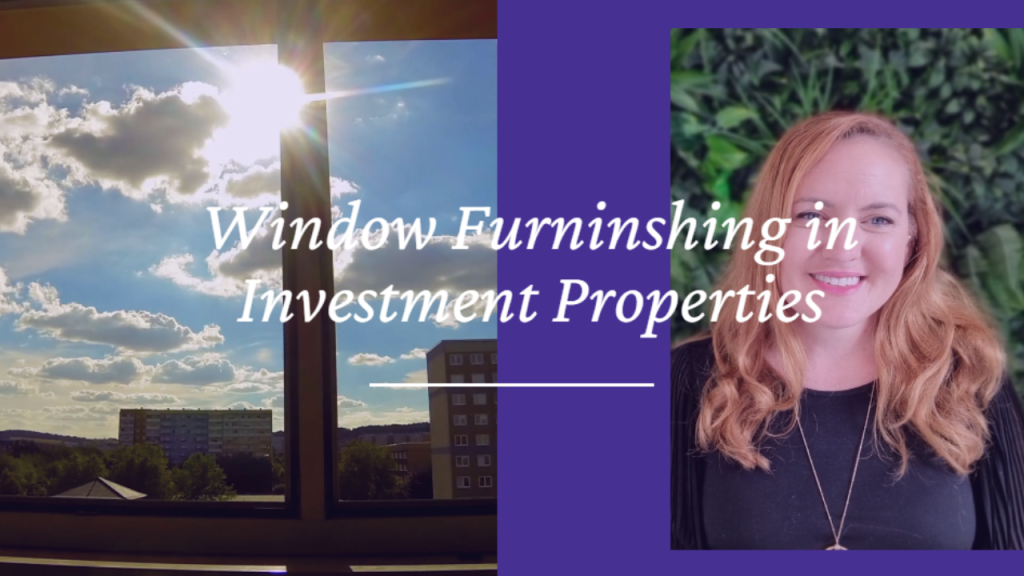When it comes to enhancing the appeal and functionality of your investment property, selecting the right window furnishings is crucial. The right choice can significantly impact the overall aesthetic, privacy, and energy efficiency of the space. In this blog, we will explore the pros and cons of various window furnishings—curtains, roller blinds, Venetian blinds, vertical blinds, and plantation shutters—to help landlords make informed decisions.
Curtains
Curtains are a classic choice for window treatments that offer versatility and numerous design options. Here are the pros and cons:
Pros:
- A wide range of fabrics, patterns, and colors available, allowing customization to match any decor.
- Excellent light control and privacy when combined with a blackout lining.
- Provide additional insulation, reducing heat loss in winter and heat gain in summer.
Cons:
- Regular maintenance is required, including washing, ironing, and occasional dry cleaning.
- Curtains may collect dust and allergens, making them unsuitable for individuals with allergies.
- They can be prone to fading when exposed to direct sunlight for extended periods.
Roller Blinds
Roller blinds are a popular choice due to their sleek design and practicality. Consider the following pros and cons:
Pros:
- Simple and minimalist design that complements various interior styles.
- Easy to operate, with options for manual or motorized controls.
- Great for light control, with blackout options available.
- Low maintenance and easy to clean.
Cons:
- Less insulation compared to curtains or plantation shutters.
- Roller blinds may not look as attractive as other window furnishings
Venetian Blinds
Venetian blinds offer excellent control over light and privacy. Here are the pros and cons:
Pros:
- Adjustable slats allow precise control of light and privacy.
- Available in various materials, including wood, aluminum, and faux wood, offering flexibility in design.
Cons:
- Dust can accumulate on the slats, requiring regular cleaning.
- Less effective in insulating compared to curtains or plantation shutters.
- Mechanisms for adjusting the slats may become loose or require maintenance over time.
Vertical Blinds
Vertical blinds are known for their suitability for wide windows or sliding glass doors. Consider the following pros and cons:
Pros:
- Ideal for larger windows and sliding doors due to their vertical orientation.
- Offer excellent control over light and privacy.
- A variety of materials, colors, and textures available to suit different decor styles.
Cons:
- Vertical blinds may collect dust and require regular cleaning.
- They can be noisy and may sway with air movement, potentially causing disturbance.
- The individual slats may become tangled or misaligned, requiring occasional maintenance.
Plantation Shutters
Plantation shutters are a premium window treatment choice that adds elegance and functionality. Here are the pros and cons:
Pros:
- Timeless and sophisticated appearance, enhancing the value of the property.
- Excellent control over light, privacy, and ventilation.
- Durable and long-lasting, often made from high-quality materials like wood or vinyl.
- Provide added insulation and noise reduction.
Cons:
- Generally more expensive than other window treatments.
- Installation can be complex and may require professional assistance.
- Limited options for adjusting light levels compared to blinds or curtains.
Choosing the right window furnishings for your investment property is a crucial decision that can significantly impact its appeal and functionality. Consider factors such as aesthetics, light control, privacy, maintenance requirements, and budget when making your choice. Whether you opt for curtains, roller blinds, Venetian blinds, vertical blinds, or plantation shutters. If you would like the advice of what would work best for your property, don’t hesitate to reach out.


